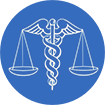 |

Heart Patients Should Get Screened for Depression, Doctors Say
September 30, 2008
By BEN WASSERMAN, Foodconsumer.org
Doctors from the American Heart Association released a new report Monday to urge patients with heart disease to receive screening for depression because it claims that depression can adversely affect their health and quality of life.
More than 80 million people in the US suffer some form of heart disease, which is the number killer in the country. Depression is common in patients with cardiovascular disease, including acute myocardial infarction (heart attack).
In the report, researchers reviewed dozens of studies and concluded that depression was three times more likely found in people who had experienced a heart attack compared with the general population.
The depression risk seemed even higher among women who have had heart attack.
One study published in the April 24, 2006 issue of Archives of Internal Medicine showed women age 60 or younger were more likely than other patients to be depressed during hospitalization for heart attack.
JAMA and Archives Journals published a press release on April 24, 2006 saying "Depressed heart attack patients are more likely to be hospitalized and die of heart problems and tend to have worse health and higher health care costs than heart attack patients who are not depressed."
For the study, Susmita Mallik, M.D., M.P.H., Emory University School of Medicine, Atlanta and colleagues survey 2,498 patients hospitalized with acute myocardial infarction between 2003 and June 2004 in the United States for their depression.
They found women and younger patients were more likely to suffer depression than men and older patients with younger women at highest risk. They found depression in 40 percent of women age 60 or younger, 21 percent in women older than 60, 22 percent in men 60 or younger and 15 percent in men older than 60. With other factors considered, the risk of depression for women age 60 and younger was three times higher than that for men older than age 60 years.
The researchers did not know why younger women were most likely to suffer depression after heart attack, but suggested hormones and social pressures might be part of the reason.
The new report said depression rates among those who were hospitalized for unstable angina, angioplasty, bypass surgery or vale surgery were similar to those who had a heart attack.
Erika Froelicher, a professor at the UCSF School of Nursing and Medicine said depression could also cause heart attacks because people with depression might not exercise or eat well or they might smoke.
An early study suggested that depression could lead to an increase in risk of heart failure.
The study of 32 people with heart failure showed 14 patients who felt the most depressed had nearly twice the levels of an inflammation protein in their blood suggesting that depression may worsen heart failure.
The study conducted by Amy Ferketich of public health at Ohio State University and colleagues and published in a Sep 2005 issue of the American Heart Journal found the level of a cytokine called tumor necrosis factor alpha or TNF-alpha was found particularly higher in those who were highly depressed patients.
In patients who had heart failure, this inflammation makes it harder for the heart to pump blood. Heart failure by definition is a condition in which the heart loses its ability to pump blood with normal efficiency.
Normally, heart failure patients have high levels of this protein, but it appears that depression makes levels of this cytokine even higher, which is bad for patients, said Ferketich whose study confirmed the claim.
Other researchers estimated that anywhere from 24 to 42 percent of heart failure patients also suffered from depression.
"Depression clearly raises the levels of one cytokine, which plays a role in increasing inflammation," Ferketich said. "What we don't know for sure is if depression causes the inflammation which may lead to heart failure or if heart failure causes depression which accelerates inflammation."
A study at Duke University found patients with major depression were twice as likely to die or to be re-admitted to the hospital a second time within 12 months.
"Patients with heart disease are prone to developing depression," Ferketich said. "Physicians need to pay more attention to this. But research still needs to be done to find out if treating patients with anti-depressants would help to actually slow the progression of heart disease."
Ben Wasserman, Foodconsumer.org

